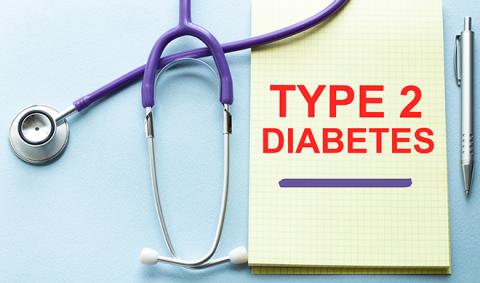Since its inception in 2019, the novel coronavirus has become a part and parcel of our lives. All of us are susceptible to fall prey to it, and while for most of us, there aren’t any severe complications, for a few people, the disease can be quite serious or even fatal. One such group of people on whom Covid-19 has a significantly higher impact are people who suffer from Type -2 Diabetes.
So, why do people with Diabetes need to be extra careful?
Diabetes is, in itself, not a life threatening disease, but if patients with diabetes contract Covid-19, the Diabetes becomes an additional factor, which, in medical terms is known as a co-morbidity. Some of the outcomes that can affect Diabetics with Covid include Inflammation of the trachea, coagulation of blood and hyperglycaemia.
For people with Diabetes, cardiovascular disease is a common symptom. Acute myocarditis or stress induced cardiomyopathy may occur in diabetics suffering from Covid-19 due to a weaker immune system. Along with cardiovascular issues, obesity is another common trait in patients with diabetes. If abdominal fat is in excess, the flow of oxygen can be further affected, thus adding to the complications.
How do doctors go about treating patients with Covid and Type-2 Diabetes?
If a patient with Type-2 Diabetes has newly identified hyperglycaemia, they may or may not require insulin. Even for those who have controlled Diabetes through noninsulin therapies, doctors won’t recommend additional medication.
In some cases, doctors may prescribe Sulfonylureas or meglitinides, but with extreme caution. In order to manage patients better, some hospitals may put Type-2 Diabetes patients with Covid-19 on scheduled insulin doses along with a couple of steroids depending on the seriousness of their condition. Patients also need to ensure that they monitor their blood glucose daily and tell the doctor about any changes, however minor.
Should you stay at home or head to a hospital?
With a sharp rise in Covid-19 cases, many doctors prefer if the patients self-isolate at home itself. But when it comes to patients with co-morbidities, the usual course of treatment includes a patient checking into a hospital for constant monitoring. Still, if your doctor tells you to self-isolate at home for any reason, there is no need to worry.
Here’s a few steps that you need to follow if you are a Type-2 Diabetes patient recovering from Covid-19 at home:
- Keep a Glucometer handy – Your blood sugar reading is an important indicator of how well your health is faring. So, monitor your blood pressure closely and report back to your doctor from time to time.
- Consume more fluids – If the doctor has prescribed additional medicine, there are chances you may be dehydrated which may affect your insulin. Ensure you have at least a liter of water per day.
- Stock Up on Insulin (if required) – Altough insulin and other medication is readily available now, it will be hard for you to step out. Stock up for an emergency.
- Course of Medicine – Your usual medicine regimen may not be effective against the added strain of Covid-19. In such a case, talk to your doctor and follow only the regimen they set for you. Do not, under any chances self-medicate.
- Focus on Symptoms – Persistent or uncommon symptoms, even after you have contracted Covid, should be reported to a doctor no matter how small or inconsequential they seem. It may be your body reacting to certain medicines or ailments.
Yes, contracting Covid-19 when one already suffers from Type-2 Diabetes is a scary thought. But now, with care, it can be controlled. If you or a loved one have suffered from Covid-19 and have recovered, there still may be a lingering danger. Contact your nearest Pathkind labs to find out where your immunity stands post Covid. Like they say, It’s better to be safe than sorry!
![]() Component: Bilirubin, Urobilinogen, Nitrite, Serum Bilirubin (Indirect,Pus Cells, UrineRBC, UrineSGOT / ASTEpithelial Cells, UrineSGPT / ALTSodium, Total Cholesterol , Total Cholesterol / HDL Ratio, Total Protein, Triglycerides, Uric Acid, VLDL Cholesterol, Creatinine, pH LevelTSH 3rd GenerationTotal T3 (Triiodothyronine)Total T4 (Thyroxine)LAP ScoreVitamin D 25 - HydroxyCovid 19- IgG Antibodies, CBC, D-Dimer(Quantitative), Specific GravityRemarksAlbuminTotal WBC Count / TLC for DLCAlbumin Globulin A/G RatioAlkaline PhosphataseBUN Creatinine RatioBilirubin DirectBilirubin TotalBlood UreaBlood Urea NitrogenCalciumChlorideC-Reactive Protein (CRP), Non HDL Cholesterol, Plasma Glucose Fasting, Ferritin, Gamma-Glutamyl Transferase (GGT), Globulin, Glucose Random, HbA1c, Lipid profile, Mean Plasma Glucose, Potassium, Urine routine
Component: Bilirubin, Urobilinogen, Nitrite, Serum Bilirubin (Indirect,Pus Cells, UrineRBC, UrineSGOT / ASTEpithelial Cells, UrineSGPT / ALTSodium, Total Cholesterol , Total Cholesterol / HDL Ratio, Total Protein, Triglycerides, Uric Acid, VLDL Cholesterol, Creatinine, pH LevelTSH 3rd GenerationTotal T3 (Triiodothyronine)Total T4 (Thyroxine)LAP ScoreVitamin D 25 - HydroxyCovid 19- IgG Antibodies, CBC, D-Dimer(Quantitative), Specific GravityRemarksAlbuminTotal WBC Count / TLC for DLCAlbumin Globulin A/G RatioAlkaline PhosphataseBUN Creatinine RatioBilirubin DirectBilirubin TotalBlood UreaBlood Urea NitrogenCalciumChlorideC-Reactive Protein (CRP), Non HDL Cholesterol, Plasma Glucose Fasting, Ferritin, Gamma-Glutamyl Transferase (GGT), Globulin, Glucose Random, HbA1c, Lipid profile, Mean Plasma Glucose, Potassium, Urine routine
![]() Include: parameters
Include: parameters
![]() Specimen: EDTA-WB, Fluoride, Serum, Urine
Specimen: EDTA-WB, Fluoride, Serum, Urine
![]() Report Delivery:
Report Delivery:












.png)






.webp)


